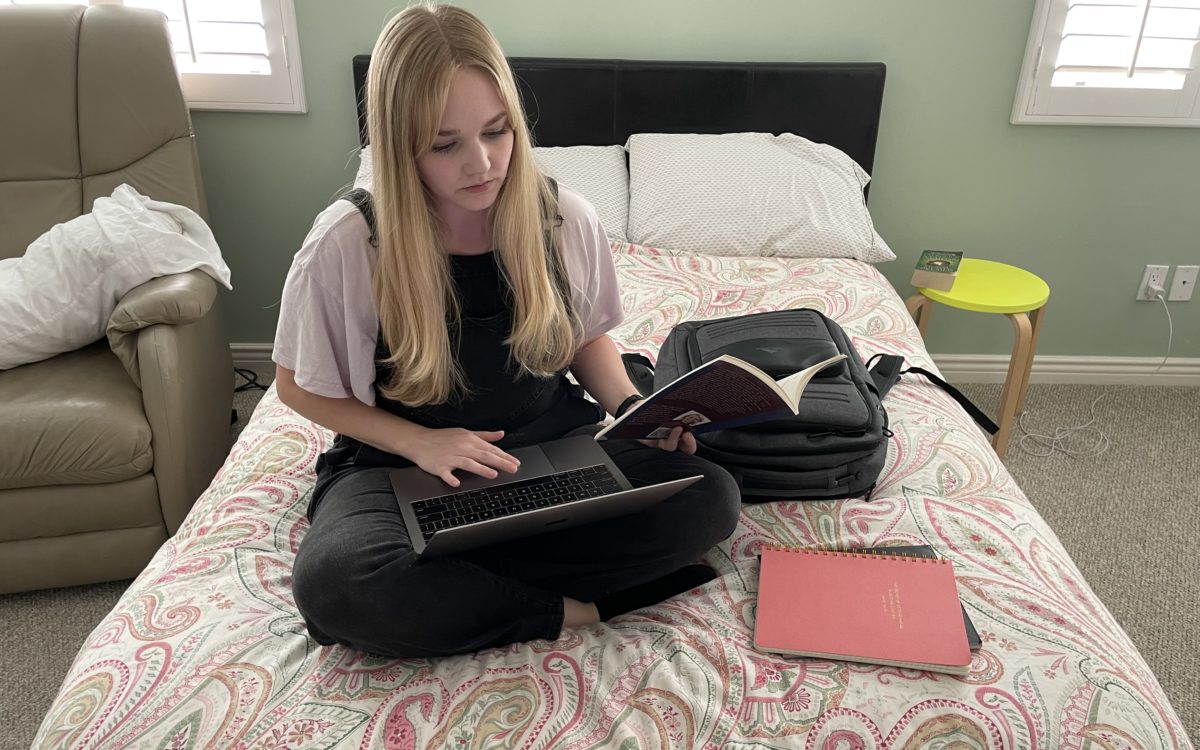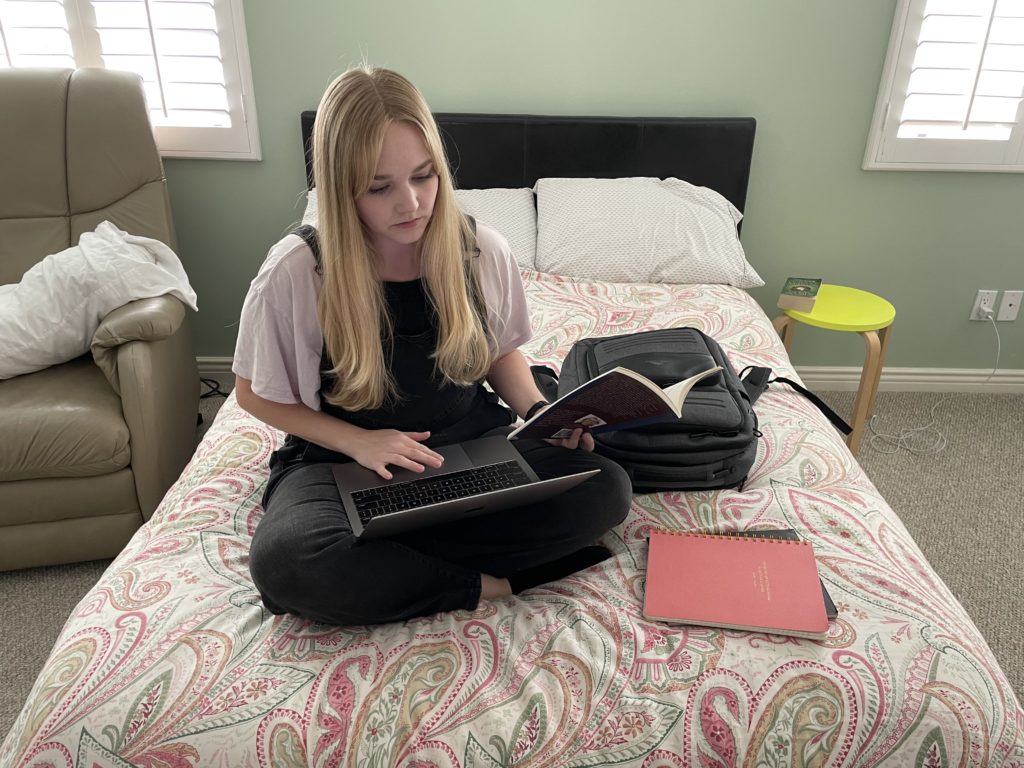 Courtesty: Taylor Helmes
Courtesty: Taylor Helmes
Taylor Helmes was first diagnosed as having severe depression a decade ago as a community college student. Through hard work and therapy, she poised to graduate from California State University, Dominguez Hills in May.
 Courtesty: Taylor Helmes
Courtesty: Taylor Helmes
Taylor Helmes was first diagnosed as having severe depression a decade ago as a community college student. Through hard work and therapy, she poised to graduate from California State University, Dominguez Hills in May.
It has been a year of living with the constant threat of Covid-19. Like some kind of invisible sand-filled blanket, this virus has added an extra layer of suffocating weight to my already tainted mental health. I have faced the darkest sides of depression, self-harm and anxiety for nearly the last decade of my life, but it hasn’t defined who I am. Rather, it has changed how I react to difficult environments and situations — and my ongoing battle during the pandemic has proven no different.
This severe isolation we have all been forced to endure has been one of the biggest challenges of my 25 years on this Earth — mentally, socially, physically and financially. In pre-pandemic times, any one of these forces could have triggered dark thoughts or my unhealthy habit of self-harm: But I never imagined having to deal with all of my struggles all at once.
I’m not the only one having a hard year; certainly, I don’t have it the worst. I have a roof over my head. I have food on the kitchen shelves in my 400-square-foot apartment. And I am able to continue my education at California State University, Dominguez Hills, albeit virtually. However, the biggest foe I face is the voice inside my head telling me my life is not worth living.
The voice has repeated the same ideas like a record player since I was 15, telling me that if I ended it all or at least severely harmed myself then things would somehow get better. One time, I caved into those demands and grabbed a knife and put it to my wrist. Another time, I contemplated pulling out my dad’s pellet gun and placing it to my head. Thankfully, my mom came home early and stopped me from using the knife and my father learned to hide his pellet gun somewhere else.
I am doing all I can to suppress that voice. I am on my fifth antidepressant in nine years; I see a psychiatrist virtually twice a month. I practice different techniques that I have learned in my years of therapy, from the four-second breathing exercise to physical activity. But when I open my heavy eyes, I still find myself facing my toughest days while stuck inside my shared one-bedroom apartment.
Prior to the pandemic, my rock bottom occurred in high school when I was first treated in a pediatric psychological ward in Sacramento. I feel like what I am going through today is even worse. But now, I am better equipped and prepared to handle whatever is thrown my way.
Part of that confidence comes from the fact that I have been treated by countless therapists since my original depression diagnosis in 2011. Plus, in community college, a campus therapist taught me how to manage my panic attacks whenever they strike in the middle of class. It takes hard, emotional work. But I do the work because each step in the right direction matters.
All this time spent at home this past year, shielding and protecting myself and those around me from coronavirus, has created an environment that fed my depression. I have become an even more somber version of myself, but I have reminded myself not to grow too numb or destructive in response to the outside world spiraling out of my control.
I cannot end this pandemic. I cannot force my campus to reopen. I cannot go back in time to advise my 15-year-old self. But I can control how I react. I can replace those words in my head with new ones.
I cannot wake up happy and hopeful each day. But I can attend class. I can become the first to graduate with a bachelor’s degree in my family, hopefully in May. I can keep taking those small steps that matter.
I have learned that contemplating taking my own life and depriving my loved ones of my existence is not the answer. What’s different now than when I was 15 is that I have the ability and strength to choose life rather than give into that relentless voice inside my head.
Taylor Helmes is a senior studying journalism at California State University, Dominguez Hills, and an intern with EdSource’s California Student Journalism Corps.
To get more reports like this one, click here to sign up for EdSource’s no-cost daily email on latest developments in education.
